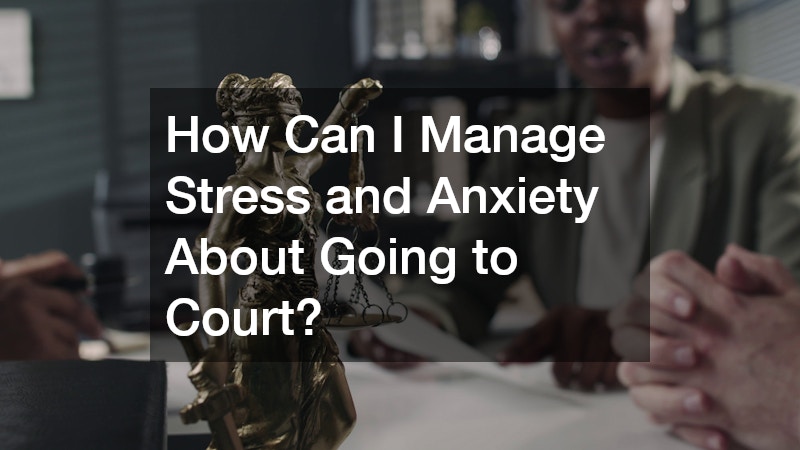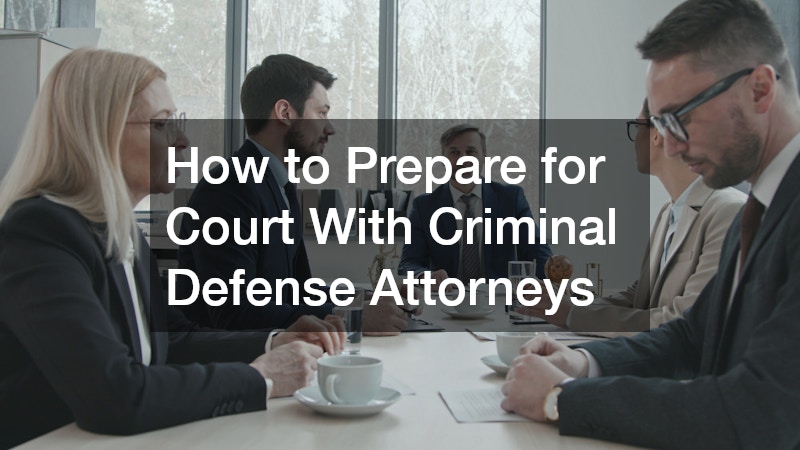How to Prepare for Court With Criminal Defense Attorneys

Understanding the importance of preparation for court when facing criminal charges is crucial. Engaging experienced criminal defense attorneys can greatly influence the outcome of legal proceedings. This article outlines essential steps and answers common questions regarding preparation for court with a criminal defense attorney.
What Should I Look for in a Criminal Defense Attorney?
Experience and Track Record
When searching for a criminal defense attorney, it’s essential to assess their experience and track record. An attorney with a proven history of successfully handling similar cases can offer invaluable insights and strategies.
The number of years an attorney has practiced can also be an indicator of their expertise. A seasoned attorney is more likely to navigate the complexities of the legal system effectively.
Additionally, researching previous case outcomes can help you gauge the attorney’s capability. Success rates in similar cases provide a clearer picture of their potential impact on your legal proceedings.
Communication and Accessibility
Clear communication with your attorney is vital for a robust defense strategy. It’s important to ensure that your attorney is accessible for consultations whenever necessary.
An attorney who responds promptly to your inquiries can enhance your peace of mind and confidence in your defense. Regular updates and transparent interactions build trust between you and your legal representative.
Moreover, the ability to discuss complex legal matters without confusion is beneficial. An attorney who communicates effectively can help clarify legal jargon and procedures involved in your case.
How Can I Effectively Communicate with My Defense Attorney?
Preparing Questions and Concerns
Before meeting with your attorney, it’s advisable to compile a list of questions and concerns. This practice ensures you address all pertinent issues related to your case.
Organizing your thoughts beforehand can make consultations more productive. By being prepared, you make the most of the time spent with your attorney.
Moreover, structured communication fosters a solid understanding of your situation and available strategies. It’s a collaborative approach that paves the way for a more targeted defense plan.
Providing Complete and Honest Information
Sharing comprehensive and truthful information with your attorney is fundamental to building a strong defense. This transparency can significantly influence the legal strategy they prepare for you.
Honesty enables your attorney to anticipate potential challenges and tailor your defense accordingly. Providing complete details prevents unforeseen surprises during the trial.
It’s essential to remember that attorney-client privilege ensures your disclosures remain confidential. This legal protection encourages open communication without fear of repercussions.
What Documents and Information Should I Collect for My Defense?
Evidence and Witnesses
Gathering evidence and identifying potential witnesses are critical components of a robust defense. They serve as tangible support for your case, reinforcing your attorney’s arguments in court.
Your attorney can guide you in understanding which pieces of evidence are most impactful. Whether it’s video footage, documents, or testimonies, proper documentation can alter the course of the trial.
Likewise, identifying credible witnesses who can attest to your character or provide alibis is beneficial. They can offer a different perspective and strengthen your overall defense strategy.
Personal and Financial Records
Organizing personal and financial records is another crucial step in preparing for court. These documents can provide context or highlight potential motivations, aiding your defense.
Your attorney may request various records that pertain to your case, such as bank statements or identification documents. Ensuring these records are readily available can expedite legal processes.
Documentation of this nature can help clarify misunderstandings or discrepancies. Effectively utilizing personal and financial records can portray a more comprehensive view of your situation.
How to Handle Courtroom Etiquette and Demeanor?
Dressing Appropriately for Court
Adhering to guidelines on proper attire and grooming is significant in maintaining respect in the courtroom. First impressions can affect perceptions and, consequently, the outcome of your case.
Your attorney can offer insights into acceptable attire, which typically leans towards formal and conservative. Presenting yourself professionally can reflect positively on your character and seriousness regarding the proceedings.
Dressing appropriately also contributes to courtroom decorum, illustrating respect for the legal process. It’s an outward expression of your commitment to addressing the charges responsibly.
Understanding Courtroom Procedures
Familiarizing yourself with courtroom protocols is vital in navigating legal proceedings effectively. Recognizing the roles of everyone present helps manage your conduct and interactions during the trial.
Your attorney can assist in explaining common procedures and expectations within the courtroom. Knowing what to expect reduces anxiety and prepares you psychologically for the experience.
Understanding courtroom dynamics is especially useful in preparing for direct interactions, whether presenting testimony or addressing the judge. It forms part of a strategic approach to managing your courtroom presence effectively.
How Can I Manage Stress and Anxiety About Going to Court?
Consultation and Counseling
Seeking professional mental health support can greatly ease the stress of anticipating court proceedings. Consulting with a counselor offers an outlet for expressing concerns and refining coping strategies.
This preventive measure ensures that stress does not impact your performance or engagement with your defense strategy. Discussing fears with a mental health professional can yield techniques tailored to your needs.
Furthermore, guidance from counseling services complements your legal approach, allowing you to tackle proceedings with greater resilience. Better mental health management fosters clearer communication with your attorney.
Mindfulness and Relaxation Techniques
Incorporating mindfulness and relaxation techniques into your routine can be an effective way to manage anxiety preceding your court appearance. Techniques such as deep breathing or visualization calm the nervous system.
Such practices encourage a focused and tranquil state of mind, allowing you to respond more effectively to legal challenges. Maintaining composure is beneficial for clear communication and decision-making.
The integration of these techniques can also contribute to overall well-being beyond the courtroom. A holistic approach to stress reduction paves the way for a more centered and prepared courtroom demeanor.


